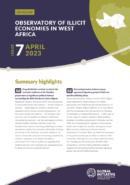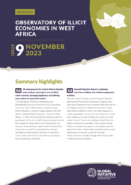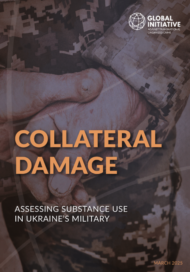Posted on 06 Jun 2013
Over the last year, maritime piracy has surged in the waters off of West Africa. In the first quarter of 2013, 67 incidents were recorded, versus 34 in the first quarter of 2012. The model of piracy in the Gulf of Guinea is quite different from that in the Indian Ocean. Rather hijacking a ship with the intention of ransoming it and its crew, West African have focused on simple theft – typically of oil – with hostage taking occurring in only 21% of incidents in 2012. Nonetheless, West Africa is vulnerable to piracy, increasing the likelihood that the number of incidents will rise. Because of the region’s expanding offshore oil industry, high-value vessels congregate close to shore. Despite efforts to bolster their strength, the coast guard and naval forces of regional states are often stretched thin. This capacity gap opens opportunities for maritime brigandry. The economic impact of increasing piracy in West Africa is high, costing the world economy between $730-950 million in 2012.
West and Central African leaders acknowledged the threat posed by piracy, and have sought to respond. In late June twenty-five heads of state held a summit in Cameroon to address piracy and other organized crime issues. Summit attendees agreed to develop a maritime fusion center, to be based on Cameroon. Additionally, a code of conduct was agreed upon. The code is intended to pave the way for greater regional cooperation against piracy. Whether or not this will be coordinated with or build upon the West Africa Coast Initiative (WACI) which was set up to enhance the capacity of Governments in the region to fight against serious and organised crime, in particular drug trafficking, remains to be seen.
Piracy in the Gulf of Guinea is likely to continue to increase, as the boom in off-shore oil production in the region will increase the number of high-value vessels close to shore. A key question however is the operational form piracy in the Gulf of Guinea will take. The current tactics of bunkering oil and robbing sailors are far less financially lucrative than the ransom-hijack model employed in Somalia. Will pirates in the Gulf of Guinea seek to employ a ransom-hijack approach in the future, and will current conditions in the region allow a successful adoption of this tactic? Or will the current operational tactics prove to be the only ones viable in the region? And how will this form of organised crime interact with the drug traffickers seeking new routes after the two DEA indictments in April 2013?



